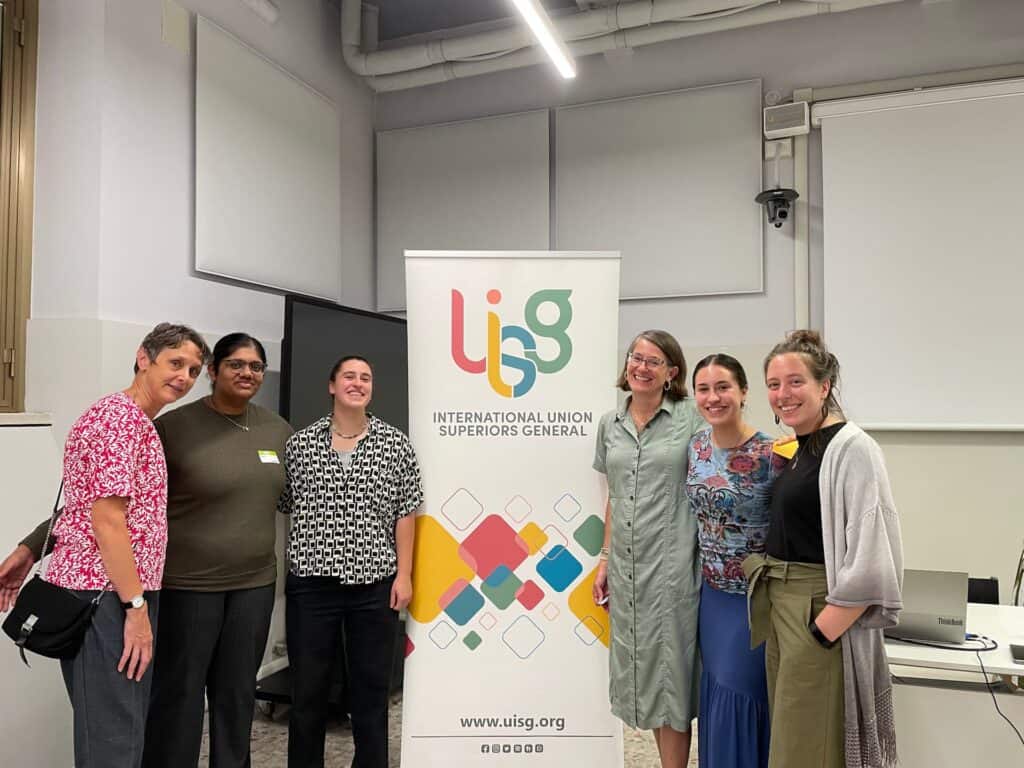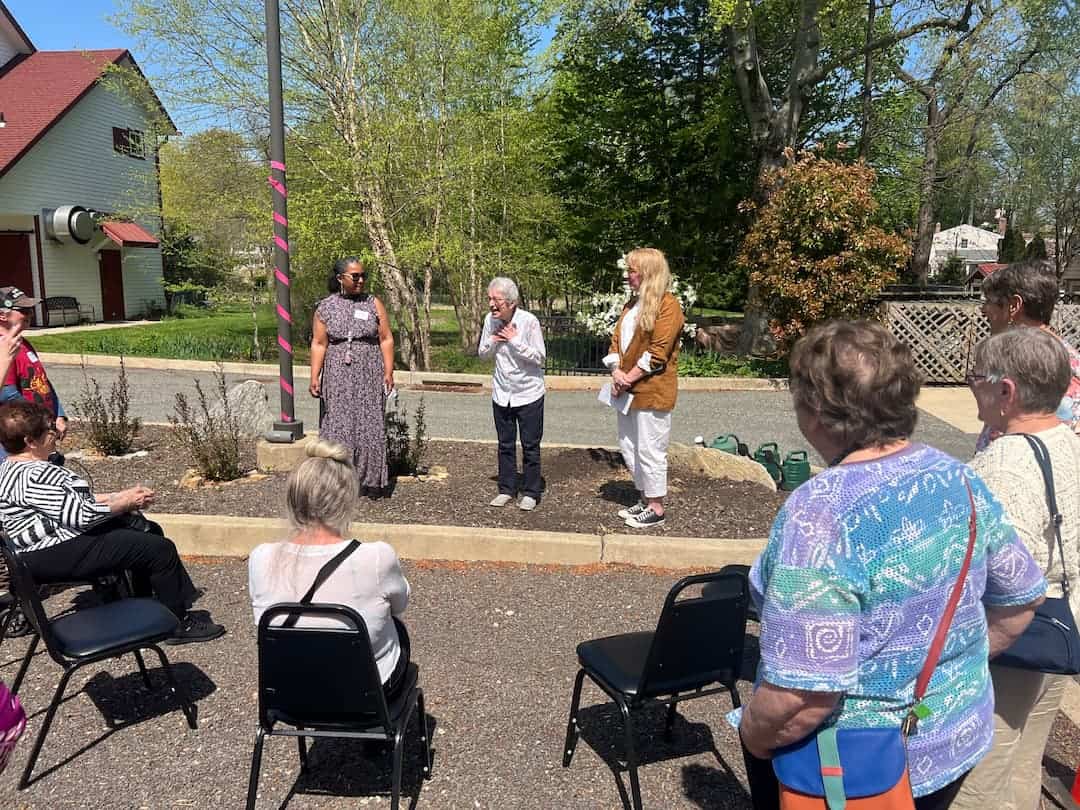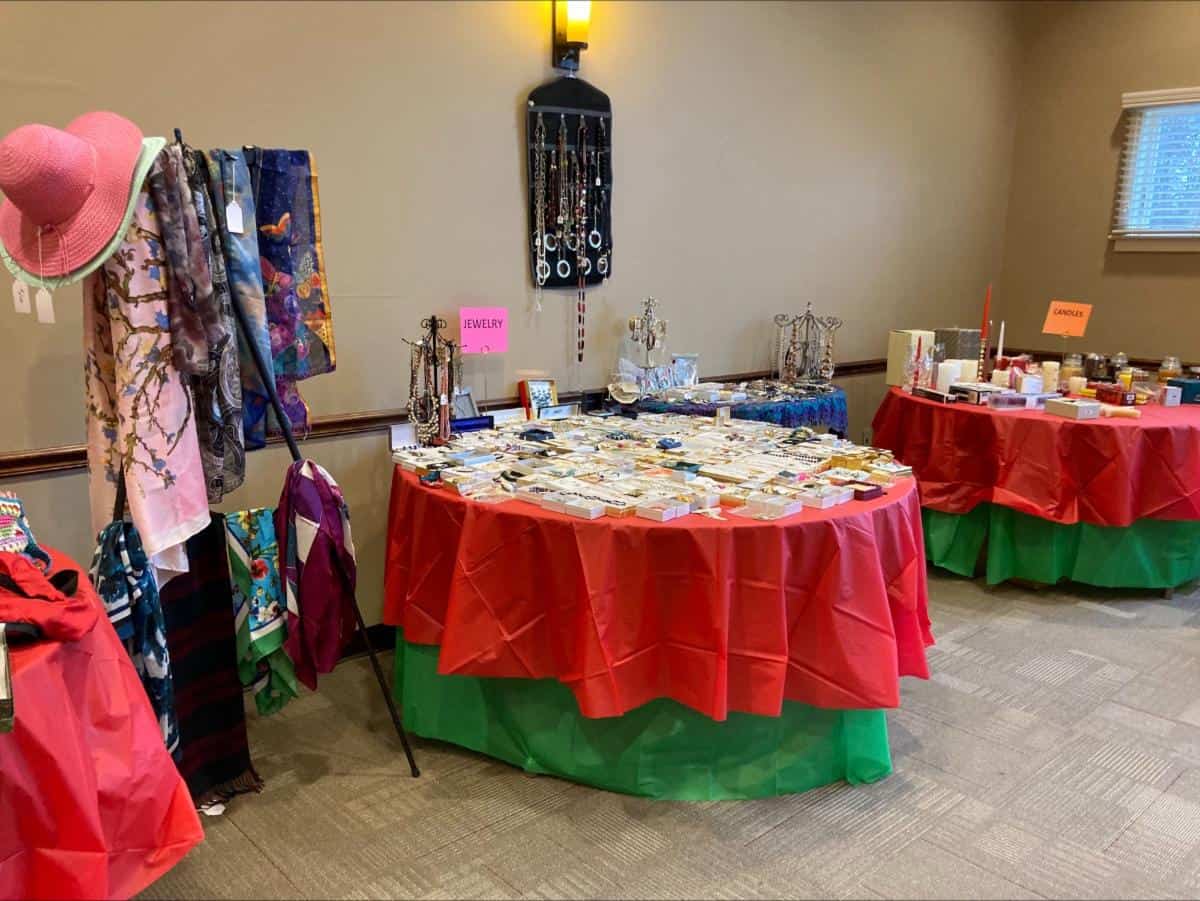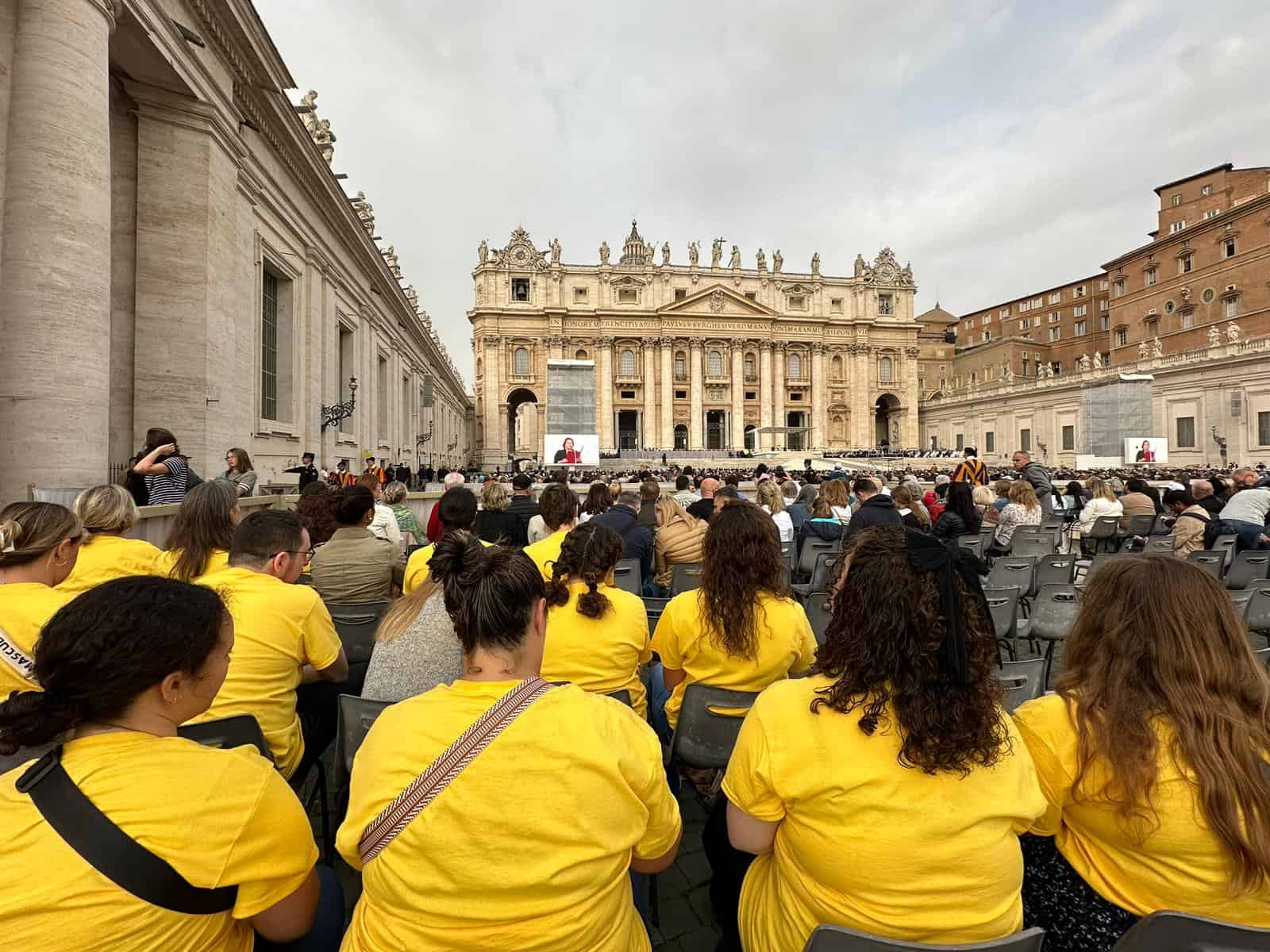Before I describe Thursday, Oct. 17 and Friday, Oct 18 of my pilgrimage in Rome with over 100 graduate and undergraduate students and thirty faculty and staff from fourteen US Catholic universities, I wish to express my gratitude to Maureen O’Connell, PhD, a former Cranaleith Board member and current member of the Mission and Governance Committee. Maureen not only envisions how to make the world and the Church more merciful, she also gathers people together to cocreate a path to get there. She regularly calls forth the gifts of others and empowers them to use those gifts – with laughter and gratitude. She embodies the values and mission of Cranaleith!
I am one example of a person Maureen empowered to do what I do best. Throughout the week, I made connections with students and teachers, young and old. I helped them understand and practice listening to the Spirit within themselves and in each other. We talked about the challenges of respectful dialogue. We wrestled with the slow, steady work of the Spirit. Resultantly, many of my fellow pilgrims invited me to work with their schools, dioceses and parishes after the pilgrimage is over.
On Thursday morning, we toured the Catacombs of Priscilla, perhaps my favorite part of the trip. The catacombs served as graves for martyrs, Christians, popes and the poor under Roman rule. Paintings surround many of the clusters of graves – vivid depictions of salvation stories from both the Hebrew and Christian Testaments. In these paintings, both characters from the stories and the dead stood with arms open, a posture of rejoicing prayer. I was reminded that, even if we feel despair today, we, like the persecuted Christians, know how the story goes. Life, not death, is the ending. In these anxious times, we need to remind each other of our faith stories. We can be honest about our suffering and worry but let us also remember the hope. May all who join us in the communion of Life and Love find strength in knowing that this is not our first rodeo!
Also on Thursday, Oct. 17, the International Union of Superior Generals of women religious (UISG) hosted a lunch for the female delegates to the synod and female students from our pilgrimage. Our planning team filled the time with activities meant to refresh the delegates, who put in long days and have made many sacrifices for the synodal movement. I sat with Sr. Mary Barron, OLA who told funny stories of having the same last name as another synod delegate, Bishop Robert Barron. Sr. Mary also reiterated two of Cardinal O’Malley’s experiences: synodal dialogue is bringing joy to all the delegates and how much deeper their discussions are this October as they build on relationships started last year. Everyone at the UISG gathering shared stories of the inspiring women in their own lives; we prayed a litany to woman saints as well. Maria Cimperman, RSCJ closed by exhorting all gathered to stay committed to dialogue and change.
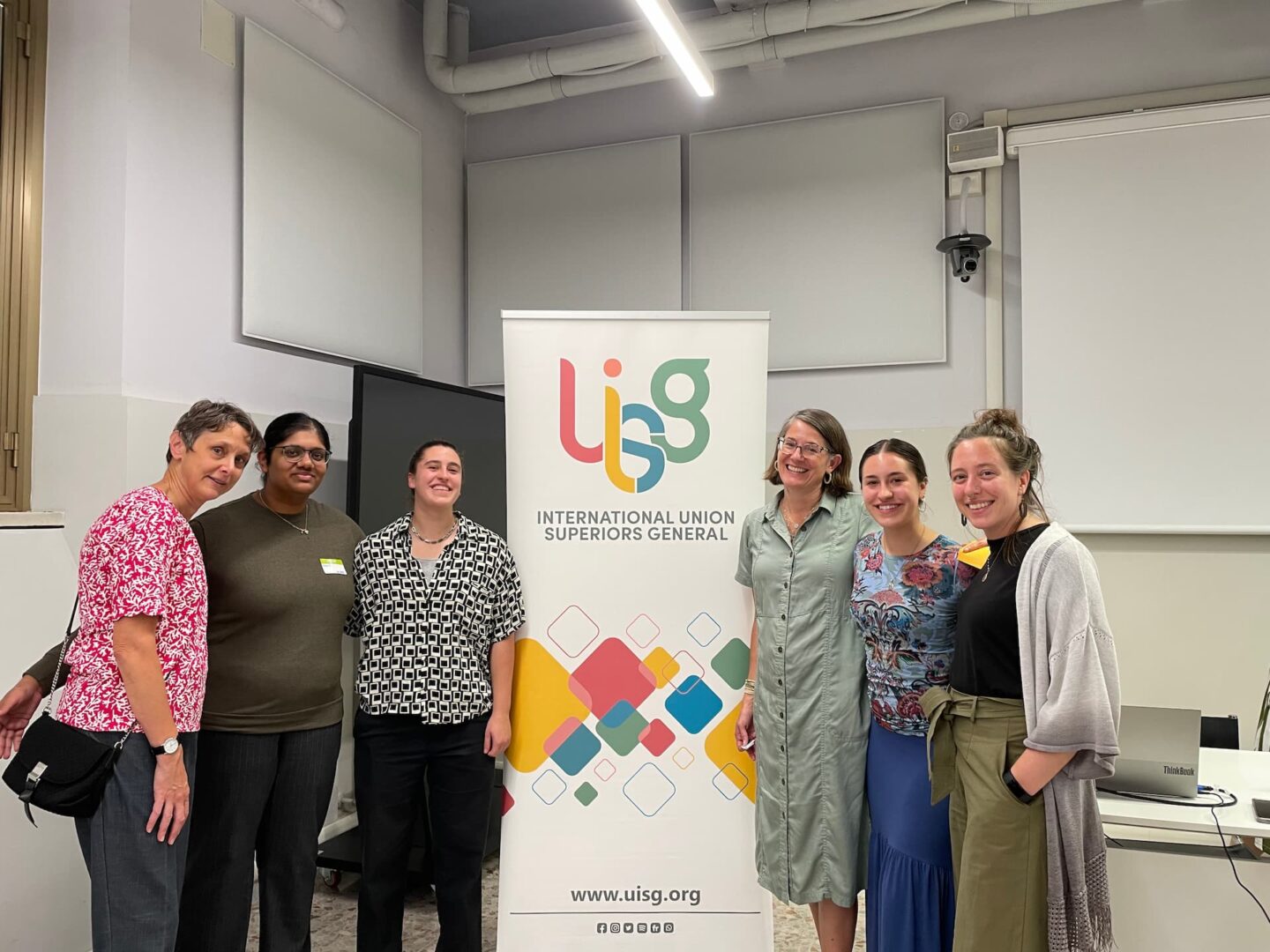
On the morning of our final day in Rome, all CENTERS students, faculty and staff returned to the Lasallian Generalate, global headquarters for the Christian Brothers, for another teach-in. This event provided time for reflection on the week’s experiences, so that each student could fashion the message they wished to share when they returned to campus. Each delegation also created a strategy for animating synodality on their campuses. Afterall, this pilgrimage was not an end in itself but rather a starting point for action. Both the work of the delegates AND that of the rest of us are needed to turn synodality into the warp and woof of all Church life.
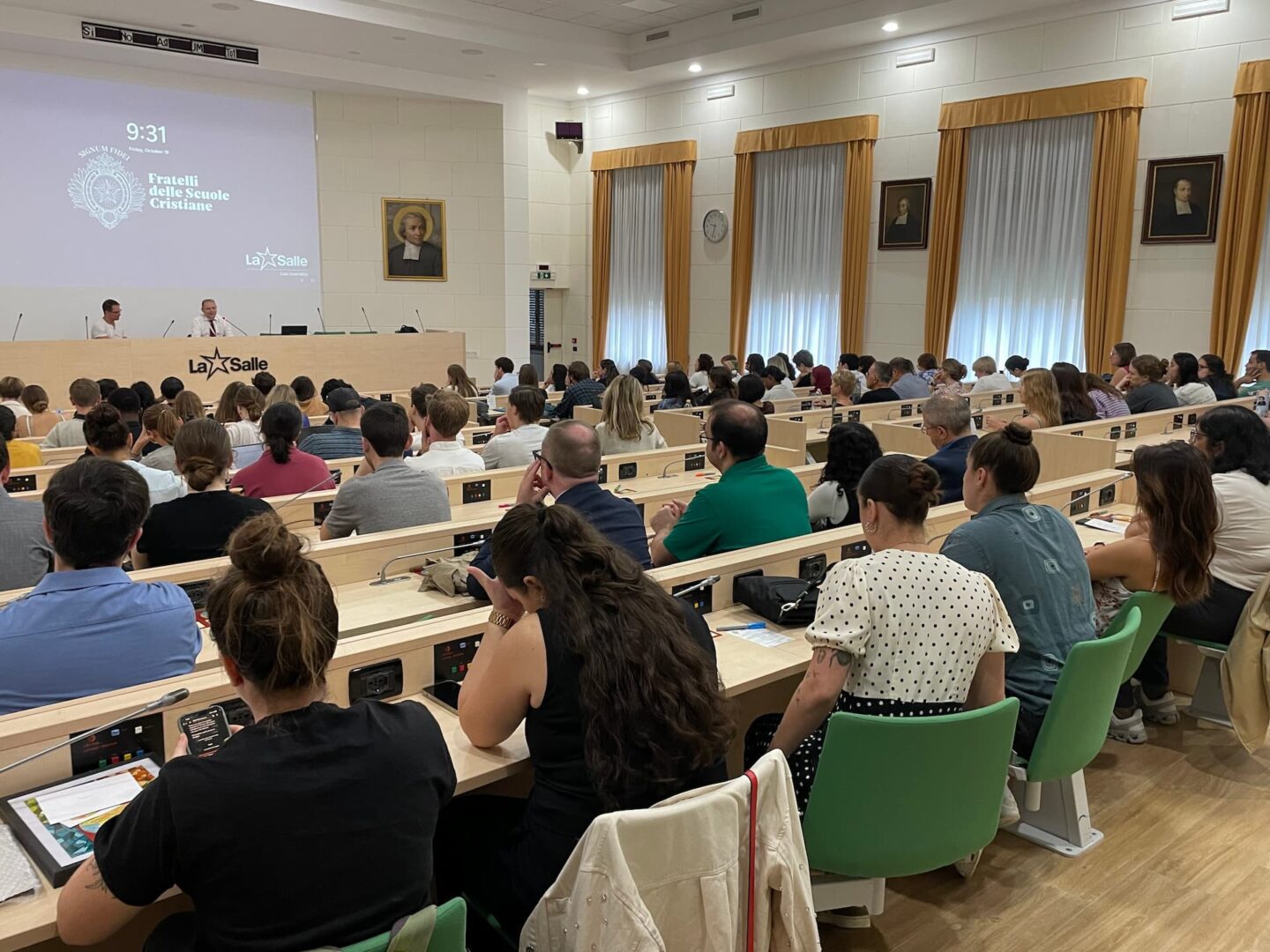
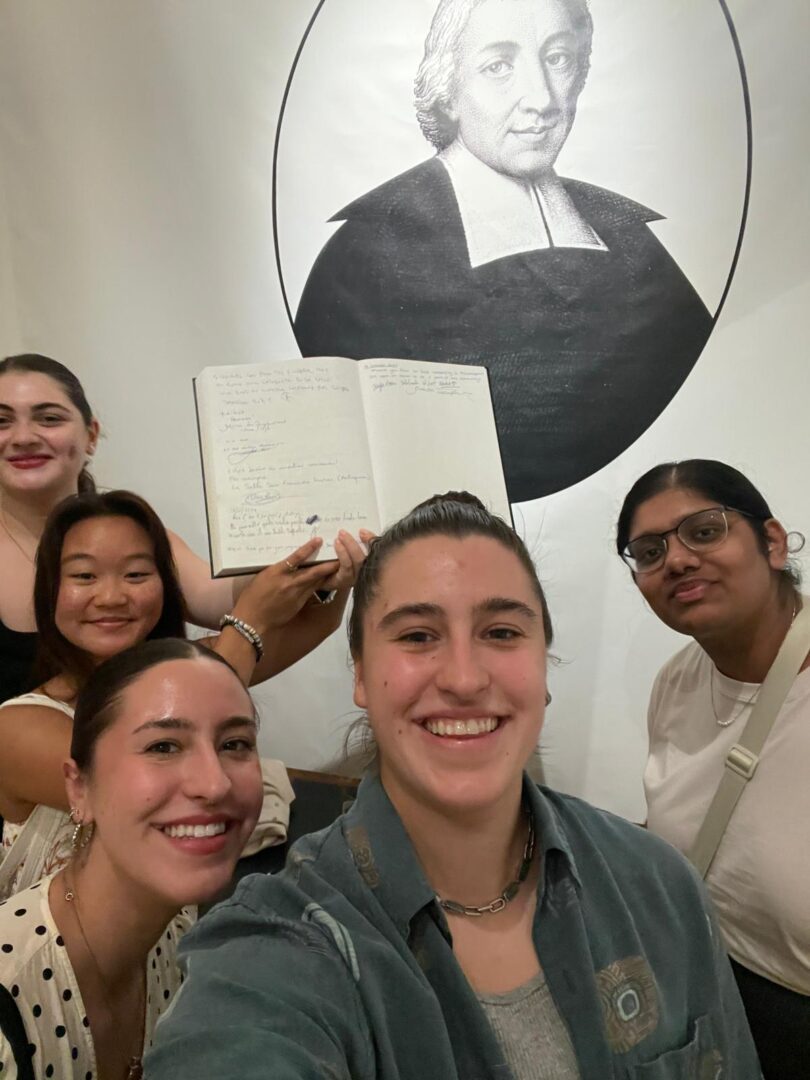
Friday’s teach-in was also preparation for a first-of-its-kind event on the floor of the Synod that evening: the Secretariat for the Synod invited our group to a globally livestreamed interaction with Cardinal Mario Grech, Secretary for the Synod, Cardinal Jean-Claude Hollerich, SJ rapporteur of the Synod, and Sr. Leticia Salazar, ODN Chancellor of the Diocese of San Bernadino and Bishop Daniel Flores of Brownsville, TX, both synod delegates. We were all excited to be allowed into the space where the synod is renewing the Church. I was also grateful for the heartfelt answers of each of the panelists. Here are some lines which moved me:
- “Listening not just to an opinion but to a person is something important for our post-modern societies because we have a clash of opinions and we very often do not see the person behind them.” — Cardinal Hollerich
- “If someone tells you something about their life, it is a gift.” – Bishop Flores
- “Listening to the voice of God is not a one-person activity.” — Sr. Leticia Salazar
- “We all need to get out more.” – Bishop Flores
- When asked how synodality has impacted their personal conversion:
- Sr. Leticia said, “Part of me became bigger. My ego became smaller. The Prayers of the Faithful (at mass) has a new meaning.”
- Bishop Flores notices more when it says in the gospels “and Jesus was moved to compassion.”
- Cardinal Hollerich hopes he has “become bishop in a different way.”
- Cardinal Grech is “more convinced I am incomplete.”
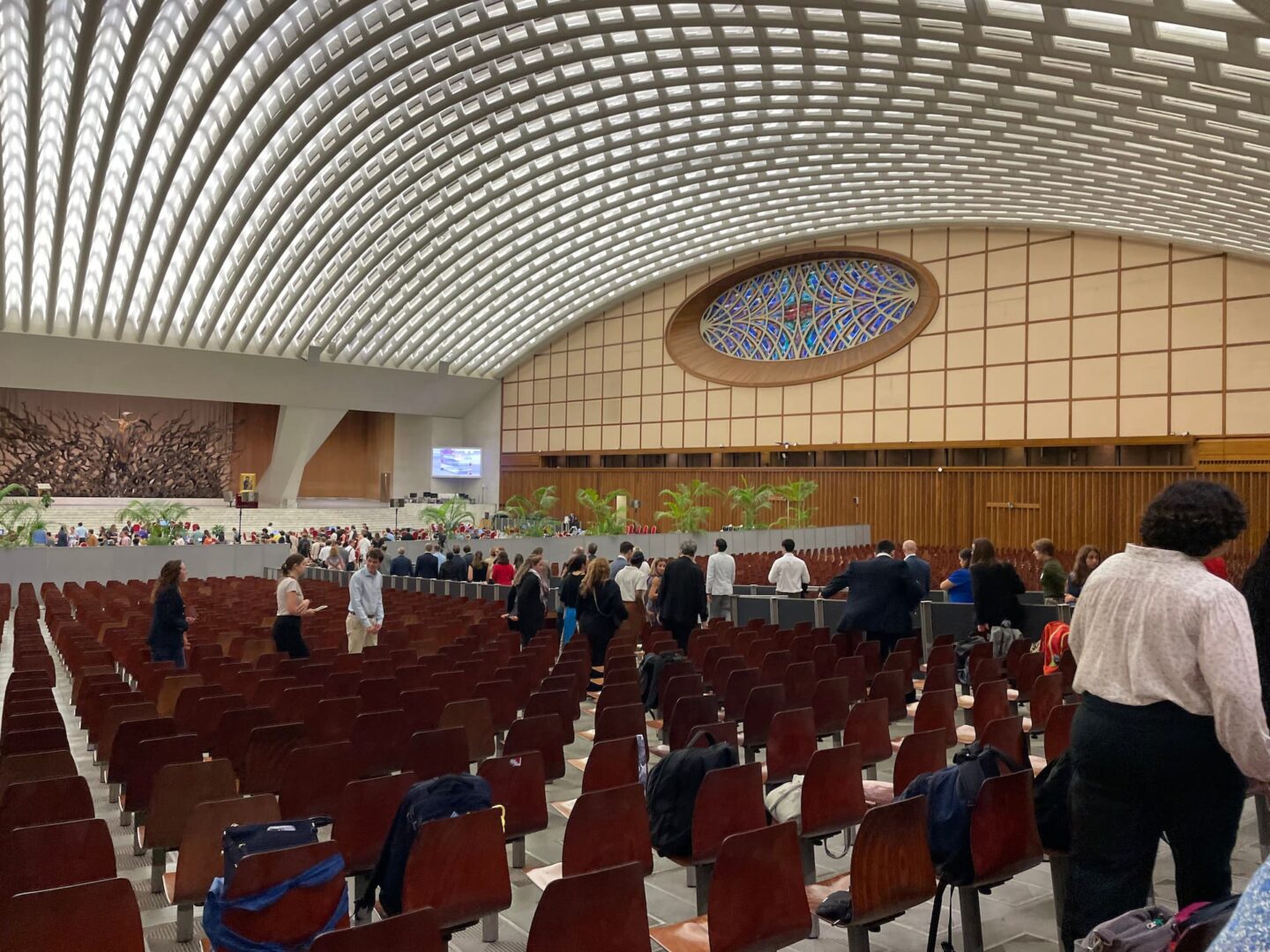
As for myself, I too have been changed by synodality. I have experienced the joy and laughter that genuine dialogue brings. I have found an abundance of life in working with others in a non-competitive, supportive way. I understand why young people of the Church refuse to see themselves as its future; they are, as they declare, the “now” of the Church. And I am even more sure than ever that what we all do through Cranaleith is good work, holy work. May Mercy always fill us with hope!

